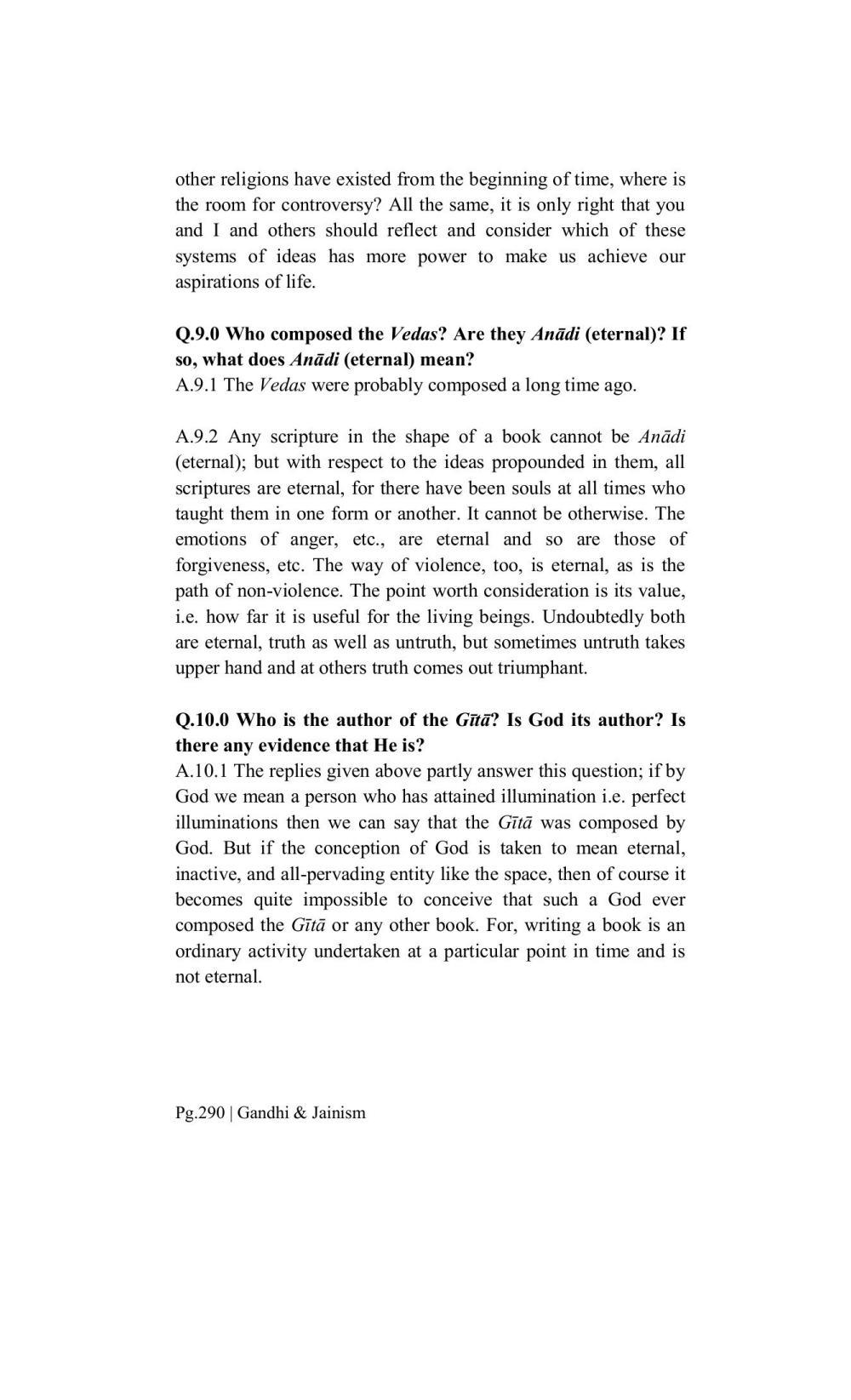________________
other religions have existed from the beginning of time, where is the room for controversy? All the same, it is only right that you and I and others should reflect and consider which of these systems of ideas has more power to make us achieve our aspirations of life.
Q.9.0 Who composed the Vedas? Are they Anādi (eternal)? If so, what does Anādi (eternal) mean? A.9.1 The Vedas were probably composed a long time ago.
A.9.2 Any scripture in the shape of a book cannot be Anādi (eternal); but with respect to the ideas propounded in them, all scriptures are eternal, for there have been souls at all times who taught them in one form or another. It cannot be otherwise. The emotions of anger, etc., are eternal and so are those of forgiveness, etc. The way of violence, too, is eternal, as is the path of non-violence. The point worth consideration is its value, i.e. how far it is useful for the living beings. Undoubtedly both are eternal, truth as well as untruth, but sometimes untruth takes upper hand and at others truth comes out triumphant.
Q.10.0 Who is the author of the Gītā? Is God its author? Is there any evidence that He is? A.10.1 The replies given above partly answer this question; if by God we mean a person who has attained illumination i.e. perfect illuminations then we can say that the Gītā was composed by God. But if the conception of God is taken to mean eternal, inactive, and all-pervading entity like the space, then of course it becomes quite impossible to conceive that such a God ever composed the Gītā or any other book. For, writing a book is an ordinary activity undertaken at a particular point in time and is not eternal.
Pg.290 Gandhi & Jainism




